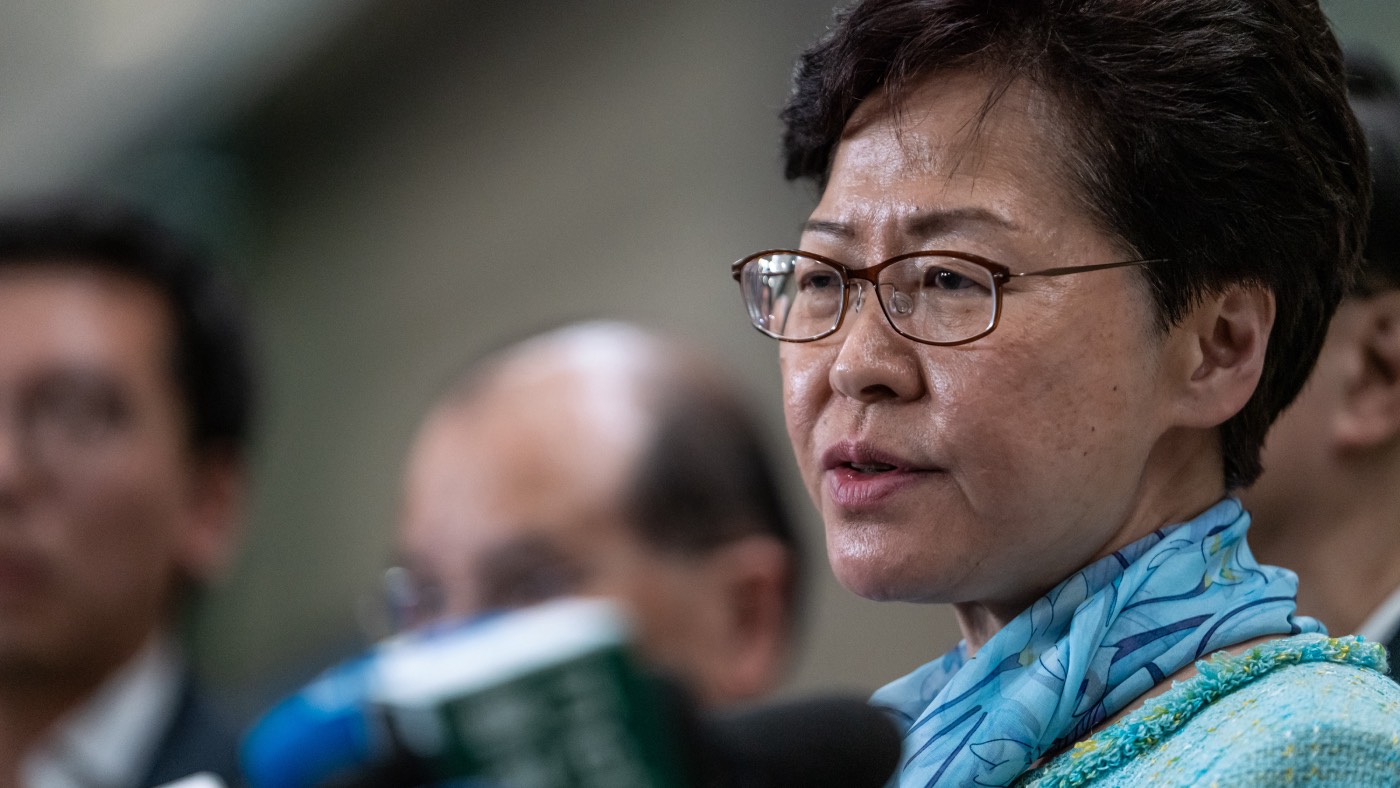Hong Kong extradition bill is ‘dead’, says Carrie Lam
Chief executive falls short of withdrawing the bill completely

A free daily email with the biggest news stories of the day – and the best features from TheWeek.com
You are now subscribed
Your newsletter sign-up was successful
Hong Kong leader Carrie Lam says the controversial bill that would have allowed extradition to the Chinese mainland is “dead”.
“What I said today is not very different from before, but maybe people want to hear a very firm response … the bill has actually died,” the chief executive of the city-state said in a statement. “So people won’t need to worry that there will be renewed discussions on the bill in the current legislature.”
The statement came after weeks of unrest in the city, in which millions of residents took to the streets to demonstrate against the bill that would allow the extradition of individuals to mainland China.
The Week
Escape your echo chamber. Get the facts behind the news, plus analysis from multiple perspectives.

Sign up for The Week's Free Newsletters
From our morning news briefing to a weekly Good News Newsletter, get the best of The Week delivered directly to your inbox.
From our morning news briefing to a weekly Good News Newsletter, get the best of The Week delivered directly to your inbox.
Some of the protests involved violent clashes with police. On 1 July, hundreds of activists stormed the city's legislature, vandalizing and occupying it for several hours before retreating in the face of a police clearance.
Lam added that she felt “heartbroken” over the conflict caused by the proposed law, which she described as a “total failure”. However, she stopped short of saying it had been withdrawn completely.
“We suspended it and we have no time table, we reiterate that when the current legislature ends, i.e. July next year, it will be automatically expired,” she said.
Political opponents have already expressed their dissatisfaction with the status of the legislation. “The bill is dead is a political description and it is not legislative language,” Civic Party lawmaker Alvin Yeung told the BBC.
A free daily email with the biggest news stories of the day – and the best features from TheWeek.com
“We have no idea why the chief executive refuses to adopt the word withdraw,” he added.
Lokman Tsui, who teaches journalism at the Chinese University of Hong Kong, wrote on Twitter: “If it’s dead for all purposes, then why not just say the words and officially withdraw it? Carrie is just playing a PR game at this point.”
Yesterday, Hong Kong activist and pop star Denise Ho clashed with a Chinese representative to the UN as she urged the international community to stand up for Hong Kong's democratic rights. CNN reports that China's delegation interrupted Ho's speech twice by raising procedural motions.
-
 Why is the Trump administration talking about ‘Western civilization’?
Why is the Trump administration talking about ‘Western civilization’?Talking Points Rubio says Europe, US bonded by religion and ancestry
-
 Quentin Deranque: a student’s death energizes the French far right
Quentin Deranque: a student’s death energizes the French far rightIN THE SPOTLIGHT Reactions to the violent killing of an ultraconservative activist offer a glimpse at the culture wars roiling France ahead of next year’s elections
-
 Secured vs. unsecured loans: how do they differ and which is better?
Secured vs. unsecured loans: how do they differ and which is better?the explainer They are distinguished by the level of risk and the inclusion of collateral
-
 Epstein files topple law CEO, roil UK government
Epstein files topple law CEO, roil UK governmentSpeed Read Peter Mandelson, Britain’s former ambassador to the US, is caught up in the scandal
-
 Iran and US prepare to meet after skirmishes
Iran and US prepare to meet after skirmishesSpeed Read The incident comes amid heightened tensions in the Middle East
-
 Israel retrieves final hostage’s body from Gaza
Israel retrieves final hostage’s body from GazaSpeed Read The 24-year-old police officer was killed during the initial Hamas attack
-
 China’s Xi targets top general in growing purge
China’s Xi targets top general in growing purgeSpeed Read Zhang Youxia is being investigated over ‘grave violations’ of the law
-
 Panama and Canada are negotiating over a crucial copper mine
Panama and Canada are negotiating over a crucial copper mineIn the Spotlight Panama is set to make a final decision on the mine this summer
-
 Why Greenland’s natural resources are nearly impossible to mine
Why Greenland’s natural resources are nearly impossible to mineThe Explainer The country’s natural landscape makes the task extremely difficult
-
 Iran cuts internet as protests escalate
Iran cuts internet as protests escalateSpeed Reada Government buildings across the country have been set on fire
-
 US nabs ‘shadow’ tanker claimed by Russia
US nabs ‘shadow’ tanker claimed by RussiaSpeed Read The ship was one of two vessels seized by the US military